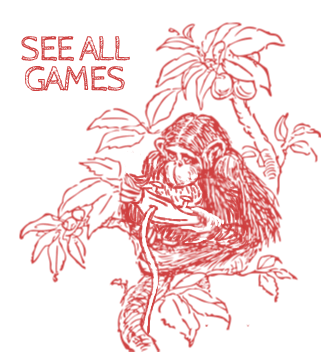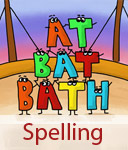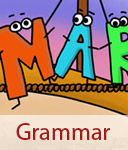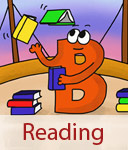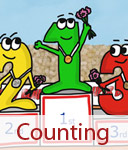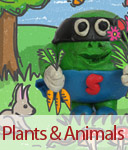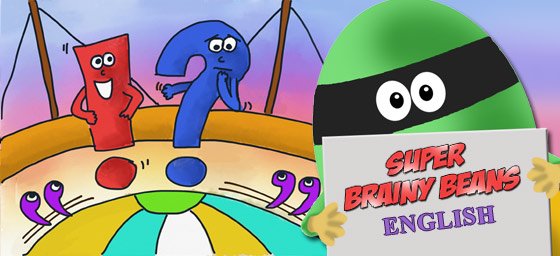
Punctuation
Year 5 & 6
Punctuation Year 5 & 6 KS2. Support on punctuation for kids with Super Brainy Beans. Primary homework help with commas, colons, semi-colons, dashes, hyphen and parenthesis.
Pick a level

Commas
Reminder:
Commas are used before speech marks to help separate what is spoken from the rest of the sentence.
"Bill was off sick today," said Ben.
Commas are used to separate adjectives.
The tree was big, brown and old.
Check your sentence that you have used the comma in the right place.
Look at that huge hot dog!
Look at that huge, hot dog!

Colon
Use a colon when you are introducing a quote.
Roald Dahl once said:
"Those who don't believe in magic
will never find it."
It can also be used before a long descriptive list.
The school council decided: to extend playtime to 30 minutes instead of 15 minutes; for the school to provide a large range fruit every morning; and allow all pupils to have water bottles from home.
Use a colon in a sentence to add more information about what comes before it.
The garden is long: there are plants, flowers and even a sandpit.

Semi-Colon
Semi-colon can be used instead of a full stop.
Chloe brought a new doll; she played with it as soon as she got home.
They can be used in long descriptive lists.
At the park there was a duck splashing in the water; boats gliding across the water; children playing football on the green grass.

Dash
A dash can be used to sum up what you want to say.
Spain has lots of sandy beaches, yummy food and warm water - I can't wait to go!

Hyphen
Use a hyphen when you can't fit a long word on the line and it continues on to the next.
The party we went to on Saturday was a disa-
pointment.
Hyphens are used to connect two words together to make a new word.
kick-off well-known ex-footballer five-year-old
Hyphens can also be used to make the meaning clear in your sentence.
a squirrel eating dragon
Is the above sentence a squirrel eating a dragon? If we put a hyphen in we can see it is now a dragon who eats squirrels
a squirrel-eating dragon



Parenthesis
Commas, brackets or dashes can be used to separate a word or phrase that has been added to a sentence as extra information.
The word or phrase between the commas, brackets or dashes is called Parenthesis.
Read the examples below. If you take out the commas, brackets or dashes the sentence will still make sense.
We went for a walk, even though it was raining, along the river.
I love all fruit (except apples) and eat some every day.
I played outside with Kate - my best friend - until it got dark.

Bullet points
Use bullet points to organise a list.
My birthday list:
- new bike
- computer game
- trainers
- pencil case.
NOTE:
The list has a title with a colon : at the end. There are no capital letters as it is a list, not a sentence. A full stop . is only added to the last item on your list.
If your list contains sentences, then you do add capital letters and full stops.

